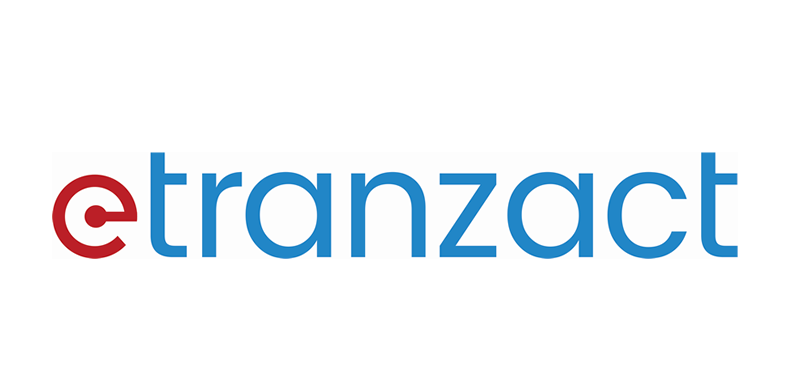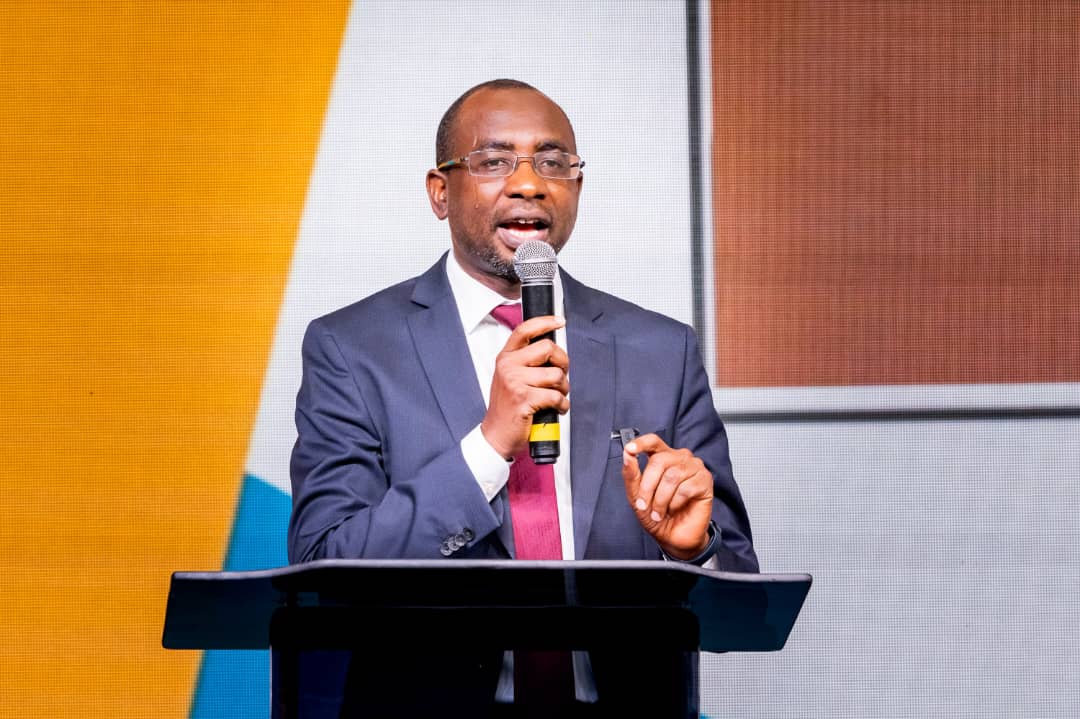Infotech
World Consumer Day: NCC assures consumers of improved telecoms service
…unveils new consumer handbook
By Ibiyemi Mathew
The Nigerian Communications Commission (NCC) has assured telecom consumers across the country that the commission will not rest on its oars until the challenges of telecoms consumers have been reduced to the barest minimum.
Delivering a speech in Commemoration of the 2021 World Consumer Rights Day (WCRD) held on Monday, Prof.Umar Danbatta, Executive vice-chairman(EVC) of NCC reiterated that all activities of the Commission are designed to give assurance to the consumers that their interests are of paramount importance to the Commission.
He noted that without the telecom consumers, there will be no telecom operators and there would be no regulator, the EVC seized the opportunity to restate the commitment if the commission to Protecting, Informing and Educating telecoms consumer.
“We call this our PIE Mandate to the consumers which embodies our philosophical commitment to strengthening all our consumer-centric initiatives and policies,”Danbatta said.
“The Nigerian Communications Act 2003 – enjoins the Commission to protect the interest of the consumers, which the Commission has done religiously, through subsidiary legislations, guidelines and directions that proactively address consumer concerns and stipulate the responsibilities of all stakeholders.
“We had made declarations to curtail excesses of some operators and to expand the frontiers of freedom for the consumers. Warnings had been handed out and fines have been imposed on erring operators. Determinations have also been made by the Commission to ensure consumers are neither shortchanged nor denied their privileges and rights.
“The Commission has ensured full compliance with Subscriber Identification Module (SIM) cards registration guidelines by the service providers and telecom consumers. This is to ensure proper registration to stop the use of improperly-registered SIMs, which usage is difficult to track. Having a credible subscriber database helps in tracing a SIM card to the real owner in case of any criminal investigation. This will help in curbing the painful rise in tempo of kidnapping, robberies, banditry and similar crimes committed with the aid of the use of SIM cards.”
The NCC demonstrated the foregoing to reveal the extent it could go to defend and protect the interests of telecom consumers; and to successively restate its commitment to its ethos of fairness, firmness and forthrightness – the doctrinal tripod of its regulatory mandate, Danbatta noted.
The Commission also seized the occasion to unveil a new Consumer Handbook.
According to the EVC, the new handbook is “a compendium of consumer information materials compiled to enhance education and protection of the consumer.
“In keeping with global best practice of digital public communication for information and complaints management, the Commission continued to leverage social media platforms of Facebook, Twitter, Instagram, LinkedIn and YouTube, to inform and educate consumers and to use them as complaints channels for the Commission.
“In addition, the NCC Consumer Web Portal serves as an alternative online channel for lodging complaints and making enquiries.
The specially created toll free number 622 and DND short code 2442, are as active as ever. They are emplaced respectively to enable consumers to escalate unresolved complaints earlier reported to service providers, and to manage unsolicited messages. Just last month, we provided evidence that “NCC’s DND crashes unsolicited SMS by 96.6% in three years.”
Chairman, industry Advisory Advocacy Forum (ICAF), Engr, Igho Majemite,delivering a goodwill message at the launch of the handbook added that,”the book is very informative and educative.
“It captured the necessary things consumers need to know in the telecommunication industry without ambiguity,”Engr Igho said.
Engr. Igho further commended the minister of communication and digital economy Dr Isa Ali Pantami, the executive vice chairman of NCC professor Umar Danbatta and his management team for the success he has achieved due to their stellar leadership qualities.
Infotech
9mobile appoints Obafemi Banigbe as CEO, gears up for new phase


As part of preparation for a new phase of business transformation, the Board of Directors of Emerging Markets Telecommunication Services Limited (EMTS), operating as 9mobile, today announced the appointment of seasoned telecoms expert and technology business leader and advisor; Obafemi Banigbe as the Chief Executive Officer of the company.
He succeeds the outgoing CEO, Juergen Peschel, who will be retained as a Consultant to support the business transformation process initiated under his leadership. This transition is consistent with 9mobile’s tradition of business continuity to ease the start of the holistic business transformation for the company.
Banigbe possesses extensive experience at the C-suite level and brings a profound comprehension of the intricate African business landscape, emphasizing the critical translation of business objectives and commercial imperatives into comprehensive strategies that drive successful execution.
Banigbe commenced his career in the telecoms industry at Celtel now known as Airtel Nigeria as the Director of Operations, preceded by significant contributions at Ericsson across various roles within the Sub-Saharan Africa Market Unit, culminating in the esteemed role of Network Support Group Manager for Access and Transport Networks.
He was previously the Chief Operations Officer at Millicom Ghana, charting the operational strategy for the business in Ghana. His journey within the Millicom Group spans pivotal positions such as Interim CEO and earlier responsibilities as Chief Technical Officer for Millicom Ghana and Millicom International Cellular Tanzania.
Banigbe’s diverse international experience transverses countries such as the United States and several African countries. He was previously the Managing Partner and Co-Founder at Silver Rock Technology Services Ghana, a strategic advisory firm specializing in the Telecom, Media, and Technology sectors. He also served as a Non-Executive Director at Amplitude Telecoms, a tower infrastructure provider in Nigeria.
As an Advisory Board member for Telecel Group, Banigbe played a pivotal role in guiding the group’s successful acquisition of Vodafone Ghana. He further enriches his advisory portfolio by contributing insights to Nsano Group, a leading Fintech platform operating across multiple African countries, and previously lent his expertise to the Kirusa group in New Jersey, USA, providing invaluable guidance on product development and market entry strategies.
Board of EMTS (9mobile) said, “We are excited about the possibilities that lie ahead and the positive impact that Obafemi will have on shaping the future of 9mobile. He brings along the vision, passion and years of experience from diverse environments, which will consolidate our priorities to provide superior customer experience and sustained network quality. Obafemi is expected to work closely with the Board of Directors and all stakeholders to define credible and achievable long-term business plans, through the introduction of solutions to address the evolving needs of the Nigerian telecommunication market.”
“The Nigerian telecoms industry is characterized by strong competition, but it is also an industry that provides opportunities for different stakeholders. I am delighted to join the 9mobile family and I look forward to using my experience and unique value propositions to lead the company in the next exciting phase of its journey. The goal is to build on the existing foundation of the company to create value that will transform the Nigerian telecoms sector. Banigbe said.”
Banigbe holds a Bachelor of Engineering in Electrical and Computer Engineering from the Federal University of Technology Minna, Nigeria. He augmented his expertise through the Ericsson Management Development Program, the Advanced Management Program at the London Business School, and culminated his academic journey with an MBA from Manchester Business School, U.K.
Infotech
eTranzact deploys digital verification system for military pensions board


eTranzact, a leading provider of innovative financial technology solutions, has announced its role as the technology solution provider for the Military Pensions Board’s new digital verification system for military pensioners, officially launched on July 1, 2024. This initiative marks a significant milestone in leveraging technology to streamline pension verification processes and enhance the welfare of military retirees across Nigeria.
With Federal Government approval, the Military Pensions Board is transitioning from traditional physical verification methods to an advanced electronic system developed and deployed by eTranzact.
This transition aims to minimise travel risks, reduce transportation costs, and accommodate the advanced age of many pensioners. Air Vice Marshal Paul Irumheson, Chairman of the Military Pensions Board, emphasised the necessity of this transition, stating that the move to electronic verification is crucial for the safety and convenience of military pensioners.
This innovative solution will ensure that retirees can verify their status from anywhere in the world, significantly reducing the burden of travel and associated risks.
The successful pilot exercise conducted between February 15 and March 1, 2024, demonstrated the efficiency and reliability of the new system. In addition to developing the verification system, eTranzact has managed salary payments for other government agencies.
The implementation of this electronic verification system is a critical step towards ensuring foolproof and seamless payment processes within the Military Pensions Board.
The Honourable Minister of State for Defence, Dr. Bello Matawalle, and the Chief of Defence Staff, General Christopher Musa, have endorsed the electronic verification exercise, recognizing its potential to revolutionise the military pensions system.
The key benefits of the digital verification system include enhanced security by reducing the risk of identity fraud and impersonation, convenience by allowing pensioners to complete verification from their homes, cost efficiency by eliminating the need for travel, and accessibility by accommodating pensioners residing both within and outside Nigeria.
CEO of eTranzact, Niyi Toluwalope, expressed his enthusiasm for the partnership, saying, “We are honoured to collaborate with the Military Pensions Board on this transformative project. At eTranzact, we are committed to harnessing the power of technology to solve critical challenges and improve the quality of life of Nigerians. This digital verification system affirms our dedication to innovation and excellence.”
eTranzact is a leading financial technology company providing innovative payment solutions and technology services. With a commitment to excellence and customer satisfaction, eTranzact continually strives to develop cutting-edge solutions that address real-world challenges and drive economic growth.
Infotech
How AI can optimise operations of small scale farmers — DG NITDA


The Director General, National Information Technology Development Agency (NITDA) Kashifu Inuwa has explained how Artificial Intelligence (AI) and other transformative technologies can optimise the operations of small scale farmers in the country.
Delivering a keynote speech in Abuja at the launching of the Survey on the Digitisation of Supply-Chain in Small-Scale Nigerian Farms Project organised by AGROVESTO (an Agritech startup and a beneficiary of the iHatch Incubation Programme Cohort 2) in conjunction with NITDA, Office for Nigeria Digital Innovation (ONDI), Japan International Cooperation Agency (JICA) with Federal Ministry of Agriculture and Food Security (FMAFS) as partner, Inuwa, who was represented by Engr. Salisu Kaka, Director of Digital Economy Department lamented that “small-scale farmers are the backbone of crop production in Nigeria.”
“Still, they face numerous challenges including limited access to technology, high production costs, limited financing, high post-harvest losses, poor market access, labour shortages, and high labour costs. These issues he noted hinder their productivity and economic potential.”
The event’s purpose was to launch a project that will enable smallholder farmers in Nigeria to thrive, increase their income, and expand their market opportunities thereby creating wealth and prosperity for the country through agriculture.
Inuwa stated that agriculture employs a significant number of Nigerians and accounts for 25.18 percent of Nigeria’s GDP in 2023 through crop production, livestock, forestry, and fishing, with crop production taking the largest share; maintaining that digitising the supply chain for small-scale farms offers a transformative solution to the challenges of food security in the country.
Inuwa affirmed that supply chain optimisation will ensure that small-scale farmers can meet the increasing consumer demands, enhance food quality and safety, and promote and utilise sustainable practices.
“This can be achieved through the adoption of technologies such as Artificial Intelligence (AI), which can handle time-demanding tasks using machine learning and predictive modelling; the Internet of Things (IoT), which can monitor crops and generate real-time data to inform automation and best practices; and blockchain, which can provide end-to-end traceability in supply chains with shareable data, building consumer trust and even making it easier to isolate and manage disease outbreaks in crops,” Inuwa said.
He said, “NITDA has been actively supporting the growth of Nigeria’s agricultural sector. One key initiative is the National Adopted Village for Smart Agriculture (NAVSA) which has engaged 965 farmers in integrating technology into agriculture.
“Our Strategic Roadmap and Action Plan, 2024 – 2027 (SRAP 2.0) also highlights our focus on promoting technology in agriculture to boost food security, increase the sector’s GDP contribution, drive economic diversification, and create jobs, aligning with the priorities of President Bola Ahmed Tinubu’s Renewed Hope Agenda,” he added.
Citing a good use case of the digitised agricultural sector, Inuwa disclosed that according to the Food and Agriculture Organisation of the United Nations (FAO), agriculture contributes 33 percent to Kenya’s GDP.
He divulged that JICA, through its Small Horticulture Empowerment & Promotion (SHEP) Approach, doubled the income of 2,500 small-scale farmers between 2007 and 2009 alone.
During his presentation, Co-founder/CEO AGROVESTO, Bayo Adewoye said that 63.5 percent of these farmers earn between N20,000 and N100,000 monthly during the sales season while 63 percent take their products to the open market to sell.
He added that the project has been designed to address these challenges, and the expected outcomes include; improved farmer income by connecting farmers to wider markets through digital tools and increasing their bargaining power and sales, boosting their incomes.
Furthermore, efficient Supply Chains by digitising agricultural value chains can reduce post-harvest losses and improve the flow of goods, benefiting farmers and markets.
He said the initiative enhances digital literacy, empowers farmers with digital skills to enable them to leverage technology to access information and expand their market reach.
He further explained that the next step is to rollout digitisation of access to the market which entails the design and integration of a tailored digital platform for market access. And the onboarding of cooperatives and SHEP graduates to the platform. Then monitoring and evaluation activities which includes review meetings with JICA and ONDI, webinar and knowledge sharing.









